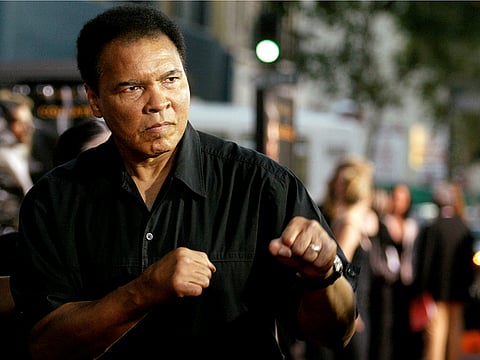Muhammad Ali was committed to his ideals
The boxing legend will be remembered as much for his sporting talent as for his ideological moorings

The uplifting exuberance of Muhammad Ali will endure long after his passing, ensuring that the lasting political achievements of one of 20th Century’s greatest sports superstars will remain a vital part of the history of the turbulence that changed the world in the 1960s and 1970s.
Ali was a deeply polarising figure who was both admired and hated in his native United States and around the world as his dazzling performances in the boxing ring brought him a huge following from those who were also entranced by his quick wit and sharp one-liners.
Ali used his fame to attract support for his religious, political and social stances. He refused to be drafted into the US army during the Vietnam War and he converted to Islam, changing his name from Cassius Clay when he joined the radical group, the Nation of Islam, led by Malcolm X, who advocated racial separation and rejected the pacifism of most civil rights movements.
The young Ali had burst onto the international stage a few years previously by winning a gold medal in the Rome Olympics in 1960 and thereby turning himself into a serious contender for the big fights, which then came his way until 1967, when he refused to be drafted in the army and was refused conscientious-objector status. He was stripped of his boxing title and also convicted of draft evasion and did not fight again for three-and-a-half years.
This sacrifice was treated as a noble act of defiance by the liberal opposition and taken as a serious threat by the conservative establishment.
It took years for him to be eventually welcomed to the White House by former US president Gerald Ford.
In his later years, Ali suffered with great dignity for three decades from Parkinson’s, an inexorable neurological condition that slowly removed his legendary verbal quickness and his physical dexterity.
Many will remember his trembling approach to light the Olympic flame in the Atlanta Olympics in 1996, but even as his health declined, Ali remained committed to his ideals.
As he grew older, he switched to more mainstream Islam and campaigned effectively for a variety of humanitarian causes. Most recently, he slammed presumptive Republican presidential candidate Donald Trump when he wanted to ban Muslims from entering the US, as Ali said, “Muslims have to stand up to those who use Islam to advance their own personal agenda”.



